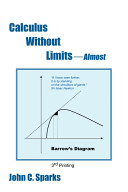How Math Books Are Like Poetry Books
If you pick up a textbook on poetry and thumb the pages, you will see poems interspersed between explanations, explanations that English professors will call prose. Prose differs from poetry in that it is a major subcategory of how language is used.
Prose encompasses all the normal uses: novels, texts, newspapers, magazines, letter writing, and such. But poetry is different! Poetry is a highly charged telescopic (and sometimes rhythmic) use of the English language, which is employed to simultaneously convey a holographic (actual plus emotional) description of an idea or an event. Poetry not only informs our intellect, it infuses our soul. Poetry’s power lies in the ability to do both in a way that it is easily remembered. Poetry also relies heavily on concision: not a word is wasted! Via the attribute of concision, most poetry when compared to normal everyday prose looks different Thus, when seen in a text, poems are immediately read and assimilated differently than the surrounding prose.
So what does poetry have to do with mathematics? Any mathematics text can be likened to a poetry text. In it, the author is interspersing two languages: a language of qualification (English in the case of this book) and a language of quantification (the universal language of algebra). The way these two languages are interspersed is very similar to that of the poetry text. When we are describing, we use English prose interspersed with an illustrative phrase or two of algebra. When it is time to do an extensive derivation or problem-solving activity—using the highly-changed, dripping-with-mathematical-meaning, and concise algebraic language—then the whole page (or two or three pages!) may consist of nothing but algebra. Algebra then becomes the alternate language of choice used to unfold the idea or solution.
Notes:
An intermix of algebra/verse and prose explanations.
Folksonomies: mathematics poetry
Taxonomies:
/art and entertainment/books and literature/poetry (0.791084)
/art and entertainment/books and literature/magazines (0.259684)
/art and entertainment/books and literature (0.232460)
Keywords:
poetry (0.931479 (positive:0.108715)), normal everyday prose (0.796911 (neutral:0.000000)), highly charged telescopic (0.755297 (positive:0.622839)), prose explanations (0.697663 (negative:-0.429077)), poetry text (0.642397 (positive:0.307543)), English prose (0.621583 (negative:-0.261996)), major subcategory (0.619252 (negative:-0.296047)), language (0.614973 (positive:0.081973)), Math Books (0.605317 (negative:-0.429077)), Poetry Books (0.597694 (negative:-0.429077)), normal uses (0.597031 (neutral:0.000000)), power lies (0.589988 (positive:0.818047)), ) description of an idea or an event. (0.589747 (neutral:0.000000)), extensive derivation (0.584100 (neutral:0.000000)), illustrative phrase (0.579747 (negative:-0.261996)), English language (0.566085 (neutral:0.000000)), universal language (0.563331 (neutral:0.000000)), alternate language (0.563026 (positive:0.378020)), mathematics text (0.556840 (neutral:0.000000)), concision (0.513210 (negative:-0.436516)), algebra (0.500923 (positive:0.113690)), idea (0.481329 (positive:0.378020)), poems (0.479796 (negative:-0.213255)), pages (0.478633 (negative:-0.202359)), way (0.472818 (positive:0.562795)), languages (0.463465 (positive:0.307543)), intermix (0.460067 (negative:-0.429077)), thumb (0.447468 (neutral:0.000000)), intellect (0.445893 (neutral:0.000000)), professors (0.444754 (neutral:0.000000))
Entities:
English:Degree (0.738939 (neutral:0.000000))
Concepts:
Mathematics (0.950799): dbpedia | freebase | opencyc
Dialect (0.724666): dbpedia | freebase
English language (0.706907): dbpedia | freebase | opencyc | yago
Lingua franca (0.658876): dbpedia | freebase
Second language (0.633195): dbpedia | freebase
German language (0.622532): dbpedia | freebase | opencyc | yago
Language (0.599250): dbpedia | freebase | opencyc
United Kingdom (0.597241): geo | website | dbpedia | ciaFactbook | freebase | opencyc | yago





